04.12.2023
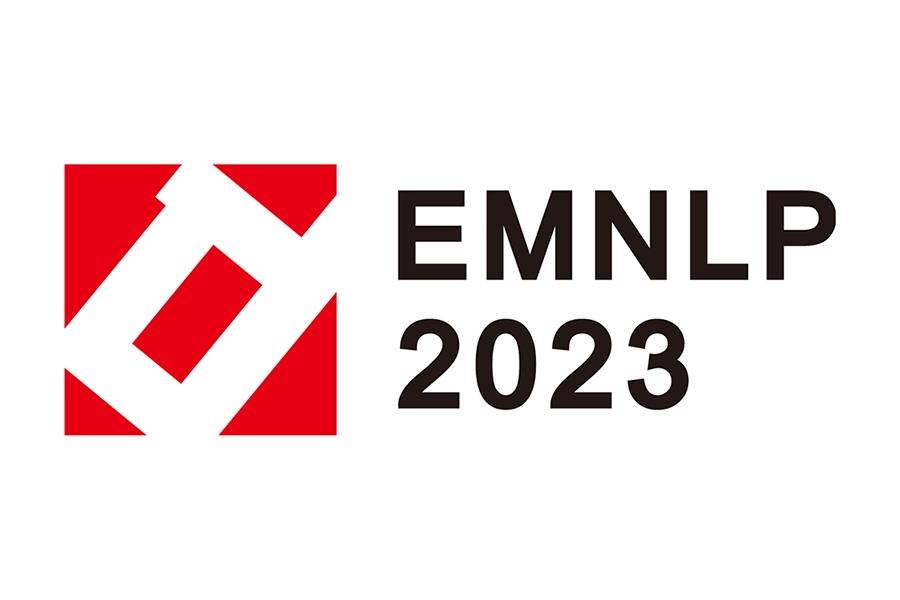
MCML researchers with 17 papers at EMNLP 2023
Conference on Empirical Methods in Natural Language Processing (EMNLP 2023). Singapore, 06.12.2023–12.12.2023
We are happy to announce that MCML researchers are represented with 17 papers at EMNLP 2023:
A Study on Accessing Linguistic Information in Pre-Trained Language Models by Using Prompts.
Conference on Empirical Methods in Natural Language Processing (EMNLP 2023). Singapore, Dec 06-10, 2023. DOI.
Abstract
We study whether linguistic information in pre-trained multilingual language models can be accessed by human language: So far, there is no easy method to directly obtain linguistic information and gain insights into the linguistic principles encoded in such models. We use the technique of prompting and formulate linguistic tasks to test the LM’s access to explicit grammatical principles and study how effective this method is at providing access to linguistic features. Our experiments on German, Icelandic and Spanish show that some linguistic properties can in fact be accessed through prompting, whereas others are harder to capture.
MCML Authors
Automatic transcription of handwritten Old Occitan language.
Conference on Empirical Methods in Natural Language Processing (EMNLP 2023). Singapore, Dec 06-10, 2023. DOI.
Abstract
While existing neural network-based approaches have shown promising results in Handwritten Text Recognition (HTR) for high-resource languages and standardized/machine-written text, their application to low-resource languages often presents challenges, resulting in reduced effectiveness. In this paper, we propose an innovative HTR approach that leverages the Transformer architecture for recognizing handwritten Old Occitan language. Given the limited availability of data, which comprises only word pairs of graphical variants and lemmas, we develop and rely on elaborate data augmentation techniques for both text and image data. Our model combines a custom-trained Swin image encoder with a BERT text decoder, which we pre-train using a large-scale augmented synthetic data set and fine-tune on the small human-labeled data set. Experimental results reveal that our approach surpasses the performance of current state-of-the-art models for Old Occitan HTR, including open-source Transformer-based models such as a fine-tuned TrOCR and commercial applications like Google Cloud Vision. To nurture further research and development, we make our models, data sets, and code publicly available.
MCML Authors
What Comes Next? Evaluating Uncertainty in Neural Text Generators Against Human Production Variability.
Conference on Empirical Methods in Natural Language Processing (EMNLP 2023). Singapore, Dec 06-10, 2023. DOI.
Abstract
In Natural Language Generation (NLG) tasks, for any input, multiple communicative goals are plausible, and any goal can be put into words, or produced, in multiple ways. We characterise the extent to which human production varies lexically, syntactically, and semantically across four NLG tasks, connecting human production variability to aleatoric or data uncertainty. We then inspect the space of output strings shaped by a generation system’s predicted probability distribution and decoding algorithm to probe its uncertainty. For each test input, we measure the generator’s calibration to human production variability. Following this instance-level approach, we analyse NLG models and decoding strategies, demonstrating that probing a generator with multiple samples and, when possible, multiple references, provides the level of detail necessary to gain understanding of a model’s representation of uncertainty.
MCML Authors
Multilingual Word Embeddings for Low-Resource Languages using Anchors and a Chain of Related Languages.
3rd Workshop on Multi-lingual Representation Learning (MRL 2023) at the Conference on Empirical Methods in Natural Language Processing (EMNLP 2023). Singapore, Dec 06-10, 2023. DOI.
Abstract
Very low-resource languages, having only a few million tokens worth of data, are not well- supported by multilingual NLP approaches due to poor quality cross-lingual word representations. Recent work showed that good crosslingual performance can be achieved if a source language is related to the low-resource target language. However, not all language pairs are related. In this paper, we propose to build multilingual word embeddings (MWEs) via a novel language chain-based approach, that incorporates intermediate related languages to bridge the gap between the distant source and target. We build MWEs one language at a time by starting from the resource rich source and sequentially adding each language in the chain till we reach the target. We extend a semi-joint bilingual approach to multiple languages in order to eliminate the main weakness of previous works, i.e., independently trained monolingual embeddings, by anchoring the target language around the multilingual space. We evaluate our method on bilingual lexicon induction for 4 language families, involving 4 very low-resource (≤ 5M tokens) and 4 moderately low-resource (≤ 50M) target languages, showing improved performance in both categories. Additionally, our analysis reveals the importance of good quality embeddings for intermediate languages as well as the importance of leveraging anchor points from all languages in the multilingual space.
MCML Authors
GlotLID: Language Identification for Low-Resource Languages.
Findings of the Conference on Empirical Methods in Natural Language Processing (EMNLP 2023). Singapore, Dec 06-10, 2023. DOI. GitHub.
Abstract
Several recent papers have published good solutions for language identification (LID) for about 300 high-resource and medium-resource languages. However, there is no LID available that (i) covers a wide range of low-resource languages, (ii) is rigorously evaluated and reliable and (iii) efficient and easy to use. Here, we publish GlotLID-M, an LID model that satisfies the desiderata of wide coverage, reliability and efficiency. It identifies 1665 languages, a large increase in coverage compared to prior work. In our experiments, GlotLID-M outperforms four baselines (CLD3, FT176, OpenLID and NLLB) when balancing F1 and false positive rate (FPR). We analyze the unique challenges that low-resource LID poses: incorrect corpus metadata, leakage from high-resource languages, difficulty separating closely related languages, handling of macrolanguage vs varieties and in general noisy data. We hope that integrating GlotLID-M into dataset creation pipelines will improve quality and enhance accessibility of NLP technology for low-resource languages and cultures.
MCML Authors
Language Models with Rationality.
Conference on Empirical Methods in Natural Language Processing (EMNLP 2023). Singapore, Dec 06-10, 2023. DOI.
Abstract
While large language models (LLMs) are proficient at question-answering (QA), it is not always clear how (or even if) an answer follows from their latent ‘beliefs’. This lack of interpretability is a growing impediment to widespread use of LLMs. To address this, our goals are to make model beliefs and their inferential relationships explicit, and to resolve inconsistencies that may exist, so that answers are supported by interpretable chains of reasoning drawn from a consistent network of beliefs. Our approach, which we call REFLEX, is to add a rational, self-reflecting layer on top of the LLM. First, given a question, we construct a belief graph using a backward-chaining process to materialize relevant model beliefs (including beliefs about answer candidates) and their inferential relationships. Second, we identify and minimize contradictions in that graph using a formal constraint reasoner. We find that REFLEX significantly improves consistency (by 8%-11% absolute) without harming overall answer accuracy, resulting in answers supported by faithful chains of reasoning drawn from a more consistent belief system. This suggests a new style of system architecture in which an LLM extended with a rational layer can provide an interpretable window into system beliefs, add a systematic reasoning capability, and repair latent inconsistencies present in the LLM.
MCML Authors
MEAL: Stable and Active Learning for Few-Shot Prompting.
Findings of the Conference on Empirical Methods in Natural Language Processing (EMNLP 2023). Singapore, Dec 06-10, 2023. DOI. GitHub.
Abstract
Few-shot classification has made great strides due to foundation models that, through priming and prompting, are highly effective few-shot learners. However, this approach has high variance both across different sets of few shots (data selection) and across different finetuning runs (run variability). This is problematic not only because it impedes the fair comparison of different approaches, but especially because it makes few-shot learning too unreliable for many real-world applications. To alleviate these issues, we make two contributions for more stable and effective few-shot learning: First, we propose novel ensembling methods and show that they substantially reduce run variability. Second, we introduce a new active learning (AL) criterion for data selection and present the first AL-based approach specifically tailored towards prompt-based learning. In our experiments, we show that our combined method, MEAL (Multiprompt finetuning and prediction Ensembling with Active Learning), improves overall performance of prompt-based finetuning by 2.3 points on five diverse tasks.
MCML Authors
Language-Agnostic Bias Detection in Language Models with Bias Probing.
Findings of the Conference on Empirical Methods in Natural Language Processing (EMNLP 2023). Singapore, Dec 06-10, 2023. DOI. GitHub.
Abstract
Pretrained language models (PLMs) are key components in NLP, but they contain strong social biases. Quantifying these biases is challenging because current methods focusing on fill-the-mask objectives are sensitive to slight changes in input. To address this, we propose a bias probing technique called LABDet, for evaluating social bias in PLMs with a robust and language-agnostic method. For nationality as a case study, we show that LABDet “surfaces” nationality bias by training a classifier on top of a frozen PLM on non-nationality sentiment detection. We find consistent patterns of nationality bias across monolingual PLMs in six languages that align with historical and political context. We also show for English BERT that bias surfaced by LABDet correlates well with bias in the pretraining data; thus, our work is one of the few studies that directly links pretraining data to PLM behavior. Finally, we verify LABDet’s reliability and applicability to different templates and languages through an extensive set of robustness checks.
MCML Authors
Mitigating Data Imbalance and Representation Degeneration in Multilingual Machine Translation.
Findings of the Conference on Empirical Methods in Natural Language Processing (EMNLP 2023). Singapore, Dec 06-10, 2023. DOI.
Abstract
Despite advances in multilingual neural machine translation (MNMT), we argue that there are still two major challenges in this area: data imbalance and representation degeneration. The data imbalance problem refers to the imbalance in the amount of parallel corpora for all language pairs, especially for long-tail languages (i.e., very low-resource languages). The representation degeneration problem refers to the problem of encoded tokens tending to appear only in a small subspace of the full space available to the MNMT model. To solve these two issues, we propose Bi-ACL, a framework which only requires target-side monolingual data and a bilingual dictionary to improve the performance of the MNMT model. We define two modules, named bidirectional autoencoder and bidirectional contrastive learning, which we combine with an online constrained beam search and a curriculum learning sampling strategy. Extensive experiments show that our proposed method is more effective than strong baselines both in long-tail languages and in high-resource languages. We also demonstrate that our approach is capable of transferring knowledge between domains and languages in zero-shot scenarios.
MCML Authors
Establishing Trustworthiness: Rethinking Tasks and Model Evaluation.
Conference on Empirical Methods in Natural Language Processing (EMNLP 2023). Singapore, Dec 06-10, 2023. DOI.
Abstract
Language understanding is a multi-faceted cognitive capability, which the Natural Language Processing (NLP) community has striven to model computationally for decades. Traditionally, facets of linguistic intelligence have been compartmentalized into tasks with specialized model architectures and corresponding evaluation protocols. With the advent of large language models (LLMs) the community has witnessed a dramatic shift towards general purpose, task-agnostic approaches powered by generative models. As a consequence, the traditional compartmentalized notion of language tasks is breaking down, followed by an increasing challenge for evaluation and analysis. At the same time, LLMs are being deployed in more real-world scenarios, including previously unforeseen zero-shot setups, increasing the need for trustworthy and reliable systems. Therefore, we argue that it is time to rethink what constitutes tasks and model evaluation in NLP, and pursue a more holistic view on language, placing trustworthiness at the center. Towards this goal, we review existing compartmentalized approaches for understanding the origins of a model’s functional capacity, and provide recommendations for more multi-faceted evaluation protocols.
MCML Authors
Crosslingual Transfer Learning for Low-Resource Languages Based on Multilingual Colexification Graphs.
Findings of the Conference on Empirical Methods in Natural Language Processing (EMNLP 2023). Singapore, Dec 06-10, 2023. DOI.
Abstract
In comparative linguistics, colexification refers to the phenomenon of a lexical form conveying two or more distinct meanings. Existing work on colexification patterns relies on annotated word lists, limiting scalability and usefulness in NLP. In contrast, we identify colexification patterns of more than 2,000 concepts across 1,335 languages directly from an unannotated parallel corpus. We then propose simple and effective methods to build multilingual graphs from the colexification patterns: ColexNet and ColexNet+. ColexNet’s nodes are concepts and its edges are colexifications. In ColexNet+, concept nodes are additionally linked through intermediate nodes, each representing an ngram in one of 1,334 languages. We use ColexNet+ to train ColexNet+, high-quality multilingual embeddings that are well-suited for transfer learning. In our experiments, we first show that ColexNet achieves high recall on CLICS, a dataset of crosslingual colexifications. We then evaluate ColexNet+ on roundtrip translation, sentence retrieval and sentence classification and show that our embeddings surpass several transfer learning baselines. This demonstrates the benefits of using colexification as a source of information in multilingual NLP.
MCML Authors
Subspace Chronicles: How Linguistic Information Emerges, Shifts and Interacts during Language Model Training.
Findings of the Conference on Empirical Methods in Natural Language Processing (EMNLP 2023). Singapore, Dec 06-10, 2023. DOI.
Abstract
Representational spaces learned via language modeling are fundamental to Natural Language Processing (NLP), however there has been limited understanding regarding how and when during training various types of linguistic information emerge and interact. Leveraging a novel information theoretic probing suite, which enables direct comparisons of not just task performance, but their representational subspaces, we analyze nine tasks covering syntax, semantics and reasoning, across 2M pre-training steps and five seeds. We identify critical learning phases across tasks and time, during which subspaces emerge, share information, and later disentangle to specialize. Across these phases, syntactic knowledge is acquired rapidly after 0.5% of full training. Continued performance improvements primarily stem from the acquisition of open-domain knowledge, while semantics and reasoning tasks benefit from later boosts to long-range contextualization and higher specialization. Measuring cross-task similarity further reveals that linguistically related tasks share information throughout training, and do so more during the critical phase of learning than before or after. Our findings have implications for model interpretability, multi-task learning, and learning from limited data.
MCML Authors
Unleashing the Multilingual Encoder Potential: Boosting Zero-Shot Performance via Probability Calibration.
Findings of the Conference on Empirical Methods in Natural Language Processing (EMNLP 2023). Singapore, Dec 06-10, 2023. DOI.
Abstract
Pretrained multilingual encoder models can directly perform zero-shot multilingual tasks or linguistic probing by reformulating the input examples into cloze-style prompts. This is accomplished by predicting the probabilities of the label words at the masked token position, without requiring any updates to the model parameters. However, the performance of this method is limited by the model’s bias toward predicting label words which frequently occurred during the pretraining. These words typically receive high probabilities. To address this issue, we combine the models with calibration techniques which modify the probabilities of label words predicted by the models. We first validate the effectiveness of a proposed simple calibration method together with other existing techniques on monolingual encoders in both zero- and few-shot scenarios. We subsequently employ these calibration techniques on multilingual encoders, resulting in substantial performance improvements across a wide range of tasks.
MCML Authors
GradSim: Gradient-Based Language Grouping for Effective Multilingual Training.
Conference on Empirical Methods in Natural Language Processing (EMNLP 2023). Singapore, Dec 06-10, 2023. DOI.
Abstract
Most languages of the world pose low-resource challenges to natural language processing models. With multilingual training, knowledge can be shared among languages. However, not all languages positively influence each other and it is an open research question how to select the most suitable set of languages for multilingual training and avoid negative interference among languages whose characteristics or data distributions are not compatible. In this paper, we propose GradSim, a language grouping method based on gradient similarity. Our experiments on three diverse multilingual benchmark datasets show that it leads to the largest performance gains compared to other similarity measures and it is better correlated with cross-lingual model performance. As a result, we set the new state of the art on AfriSenti, a benchmark dataset for sentiment analysis on low-resource African languages. In our extensive analysis, we further reveal that besides linguistic features, the topics of the datasets play an important role for language grouping and that lower layers of transformer models encode language-specific features while higher layers capture task-specific information.
MCML Authors
ACTOR: Active Learning with Annotator-specific Classification Heads to Embrace Human Label Variation.
Conference on Empirical Methods in Natural Language Processing (EMNLP 2023). Singapore, Dec 06-10, 2023. DOI.
Abstract
Label aggregation such as majority voting is commonly used to resolve annotator disagreement in dataset creation. However, this may disregard minority values and opinions. Recent studies indicate that learning from individual annotations outperforms learning from aggregated labels, though they require a considerable amount of annotation. Active learning, as an annotation cost-saving strategy, has not been fully explored in the context of learning from disagreement. We show that in the active learning setting, a multi-head model performs significantly better than a single-head model in terms of uncertainty estimation. By designing and evaluating acquisition functions with annotator-specific heads on two datasets, we show that group-level entropy works generally well on both datasets. Importantly, it achieves performance in terms of both prediction and uncertainty estimation comparable to full-scale training from disagreement, while saving 70% of the annotation budget.
MCML Authors
Counting the Bugs in ChatGPT's Wugs: A Multilingual Investigation into the Morphological Capabilities of a Large Language Model.
Conference on Empirical Methods in Natural Language Processing (EMNLP 2023). Singapore, Dec 06-10, 2023. DOI.
Abstract
Large language models (LLMs) have recently reached an impressive level of linguistic capability, prompting comparisons with human language skills. However, there have been relatively few systematic inquiries into the linguistic capabilities of the latest generation of LLMs, and those studies that do exist (i) ignore the remarkable ability of humans to generalize, (ii) focus only on English, and (iii) investigate syntax or semantics and overlook other capabilities that lie at the heart of human language, like morphology. Here, we close these gaps by conducting the first rigorous analysis of the morphological capabilities of ChatGPT in four typologically varied languages (specifically, English, German, Tamil, and Turkish). We apply a version of Berko’s (1958) wug test to ChatGPT, using novel, uncontaminated datasets for the four examined languages. We find that ChatGPT massively underperforms purpose-built systems, particularly in English. Overall, our results—through the lens of morphology—cast a new light on the linguistic capabilities of ChatGPT, suggesting that claims of human-like language skills are premature and misleading.
MCML Authors
From Dissonance to Insights: Dissecting Disagreements in Rationale Construction for Case Outcome Classification.
Conference on Empirical Methods in Natural Language Processing (EMNLP 2023). Singapore, Dec 06-10, 2023. DOI.
Abstract
In legal NLP, Case Outcome Classification (COC) must not only be accurate but also trustworthy and explainable. Existing work in explainable COC has been limited to annotations by a single expert. However, it is well-known that lawyers may disagree in their assessment of case facts. We hence collect a novel dataset RaVE: Rationale Variation in ECHR, which is obtained from two experts in the domain of international human rights law, for whom we observe weak agreement. We study their disagreements and build a two-level task-independent taxonomy, supplemented with COC-specific subcategories. To our knowledge, this is the first work in the legal NLP that focuses on human label variation. We quantitatively assess different taxonomy categories and find that disagreements mainly stem from underspecification of the legal context, which poses challenges given the typically limited granularity and noise in COC metadata. We further assess the explainablility of state-of-the-art COC models on RaVE and observe limited agreement between models and experts. Overall, our case study reveals hitherto underappreciated complexities in creating benchmark datasets in legal NLP that revolve around identifying aspects of a case’s facts supposedly relevant for its outcome.
MCML Authors
04.12.2023
Related
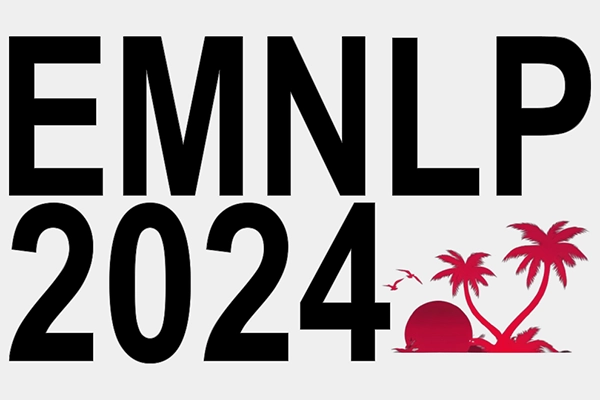
06.11.2024
MCML researchers with 20 papers at EMNLP 2024
Conference on Empirical Methods in Natural Language Processing (EMNLP 2024). Miami, FL, USA, 12.11.2024 - 16.11.2024
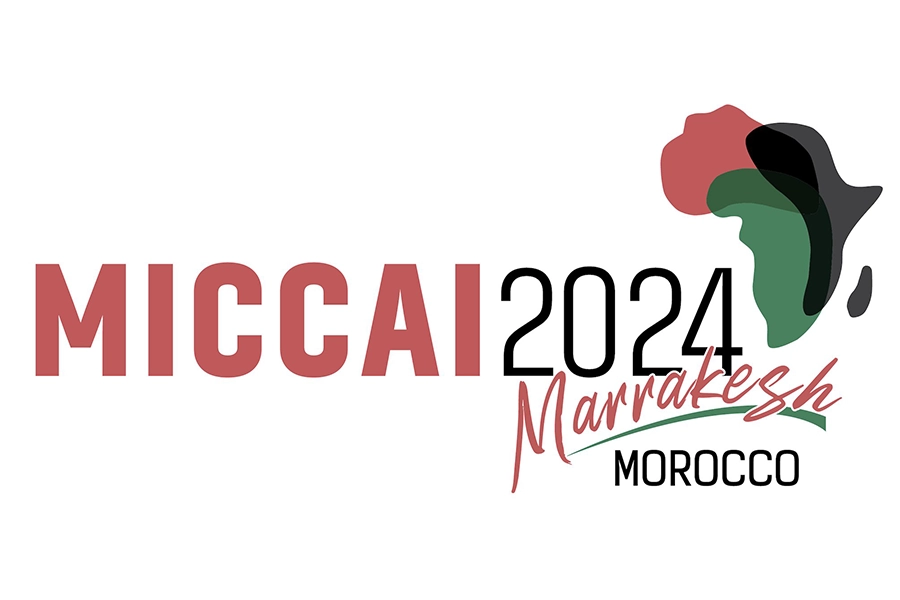
01.10.2024
MCML researchers with 16 papers at MICCAI 2024
27th International Conference on Medical Image Computing and Computer Assisted Intervention (MICCAI 2024). Marrakesh, Morocco, 06.10.2024 - 10.10.2024
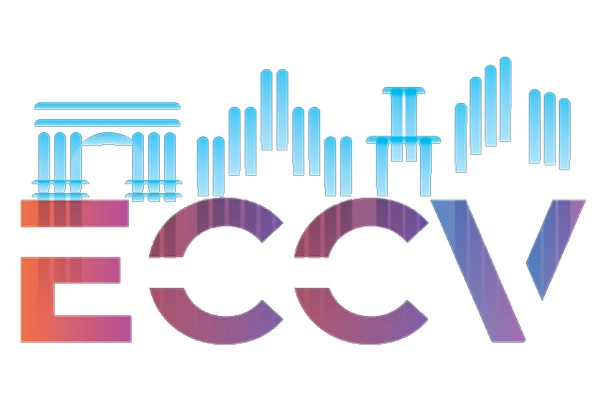
26.09.2024
MCML researchers with 18 papers at ECCV 2024
18th European Conference on Computer Vision (ECCV 2024). Milano, Italy, 29.09.2024 - 04.10.2024
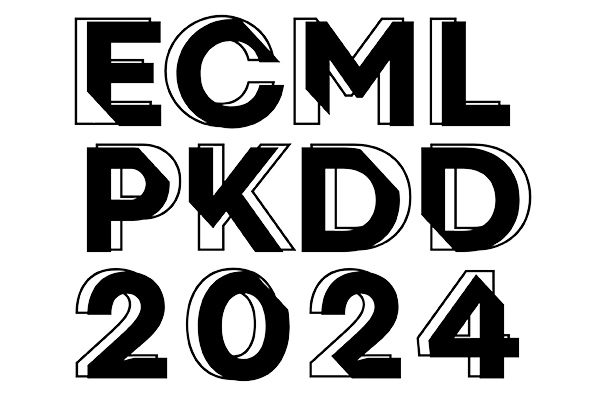
10.09.2024
MCML at ECML-PKDD 2024
We are happy to announce that MCML researchers are represented at ECML-PKDD 2024.
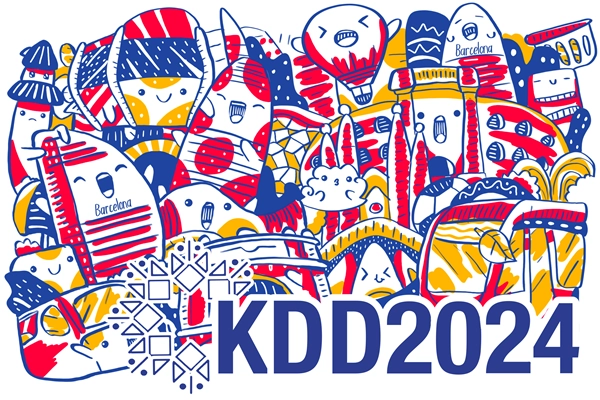
20.08.2024
MCML researchers with two papers at KDD 2024
30th ACM SIGKDD International Conference on Knowledge Discovery and Data (KDD 2024). Barcelona, Spain, 25.08.2024 - 29.08.2024














